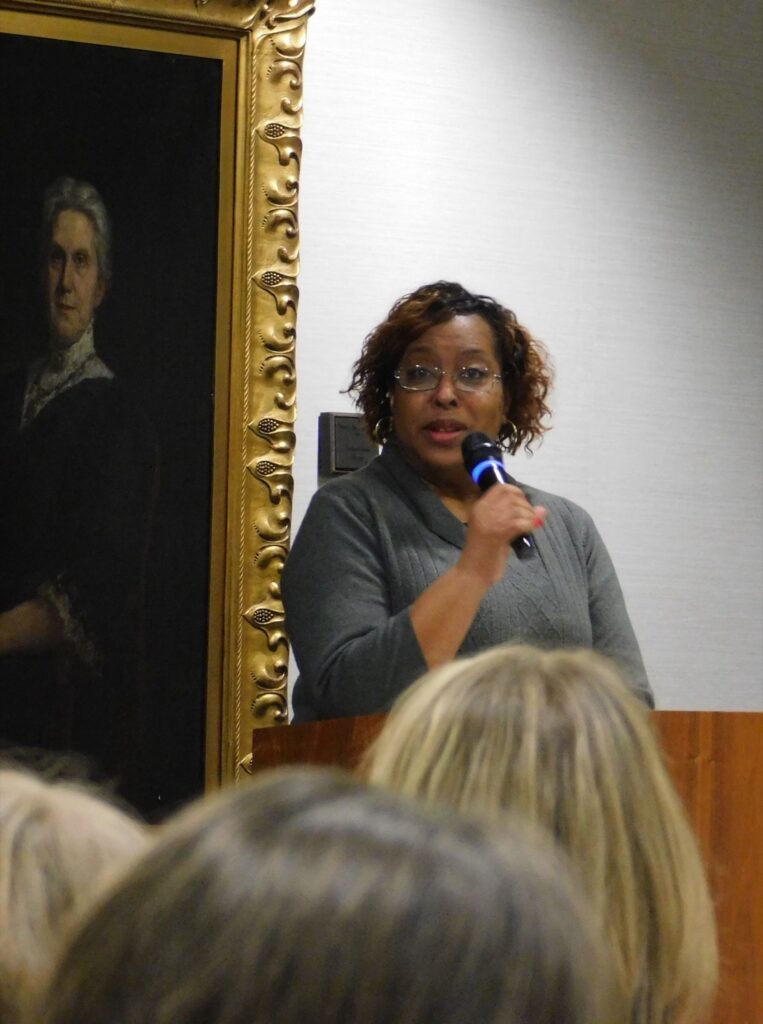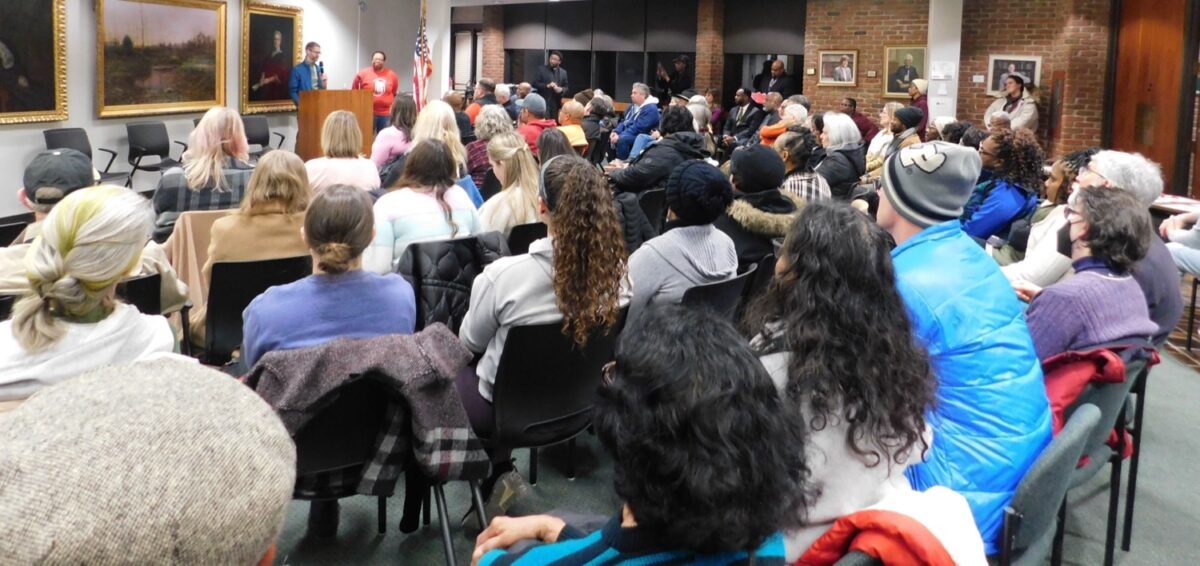More than 100 residents gathered for an hour to hear why several students, parents and educators believe that Richmond Community Schools needs to adopt an equity policy.
The Rev. Michael Jefferson, pastor of Richmond’s Bethel AME Church and a former teacher, served as moderator for a Jan. 16 community forum organized by Richmond Education Association’s Racial Equity Coalition.
The coalition describes itself as a growing group of educators, union members, students, parents and community members who “promote diversity, equity, inclusion, access and belonging in RCS to increase opportunities for barrier-free access to education for Richmond’s youth.”
They’d like the district to have a policy in place “so the wonderful diversity of our student body is respected and valued, and is represented by increased diversity among the staff/teaching/administrative bodies.”
As someone who’s worked in diversity, equity and inclusion for about 10 years, Jefferson said those can sometimes be charged words. Listeners might feel that something will be taken from them or their children and given to someone else.
However, Jefferson aimed to keep the conversation focused on providing the city’s children equal access to opportunities for the benefit of everyone involved.
“When they have good outcomes, we have a hopeful future,” Jefferson said. “… I’m a huge believer that when kids have everything they need, they’ll blow our minds.”

Four RCS students of differing racial and socioeconomic backgrounds described some uncomfortable situations they experienced or witnessed at school. They said they believe some teachers could benefit from additional resources or training to respond to concerns such as bullying because of race/ethnicity, autism, poverty, mental health and the value of learning to pronounce a student’s name instead of whitewashing it.
Sayward Salazar, a social worker and parent, said it’s easy for people to assume an equity policy doesn’t apply to them, but it would apply to the vast majority of RCS students.
Salazar said a lot of Richmond High School students face seemingly small obstacles that can greatly impact their whole school career. One example is that some incoming ninth-graders can’t afford optional summer school or find transportation, putting those classes out of reach.
Teacher Tre Ronne admits he “checks the boxes of white privilege” and noted RCS’ school board already has a goal to promote equity. However, Ronne supports an equity policy that is more specific and keeps pushing against the status quo.
“Do we want to live in a society where students have equal opportunity or in a society where their success can be predicted by their demographics?” Ronne asked.
National studies have shown that students of color face educational disadvantages at disproportionately higher rates than white students, and that bias and discrimination can affect the overall quality of education being offered. A 2019 Stanford-led study indicated that if a school has higher suspension rates for students of color than for white students, that school is likely also not meeting the academic needs of all students, regardless of race.
Ronne said the community needs to come together to support its children to benefit the local economy at a time when the community faces obstacles such as the effects of addiction and poverty.
Debbie Carter said approximately 3% of RCS teachers are of color, which doesn’t match the district’s increasing student diversity.
Carter said data shows that students perform better on standardized tests, have fewer disciplinary issues and a better chance of completing high school when they see teachers like themselves.
Carter noted that white students also benefit from racially/ethnically diverse teachers because students learn different perspectives, increase their sense of civic engagement and develop better problem solving and critical thinking skills.
She’s concerned about nearly all RCS’ schools’ low scores on IREAD and ILEARN tests in general, and how students of color performed at lower rates than white students. She believes more support systems are needed for kids.
Several RCS board members and Superintendent Curtis Wright attended the forum.
Coalition members said they wanted to gather community feedback at the event to combine with their analysis of equity policies across the country as they complete a policy draft to give to RCS officials for their consideration.
In a statement after the event, Carter said that she was pleased with the supportive turnout and that it “confirms that the people of Richmond have a genuine interest in the well-being and education of all of our children.”
A version of this article appeared in the January 24 2024 print edition of the Western Wayne News.

